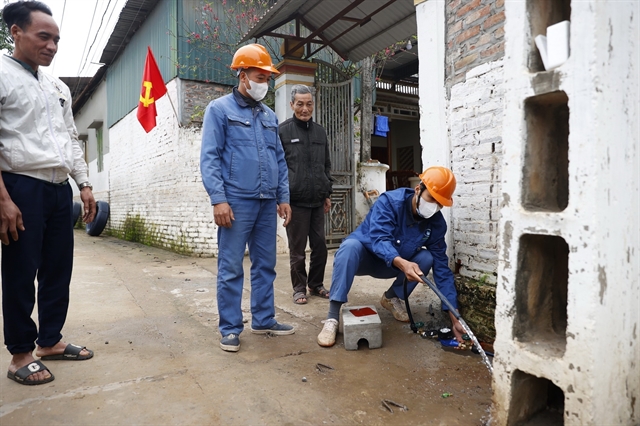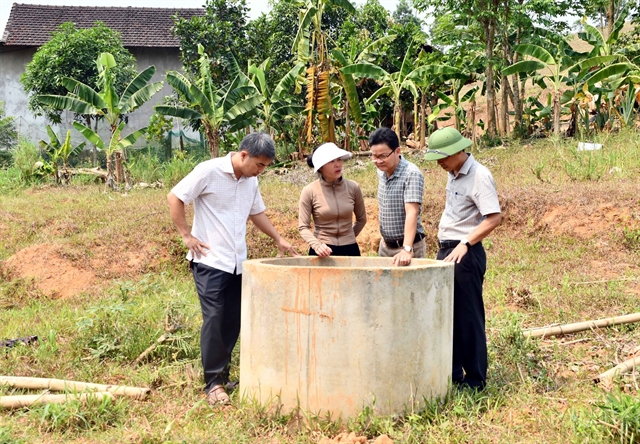 Society
Society

 |
| A dry well in Tiền Phong Village. Hundreds of wells in the village have been depleted due to the drought. — VNA/VNS Photo Võ Tá Chuyên |
QUẢNG BÌNH — As the scorching summer heat intensifies, residents in several mountainous and coastal areas of central province Quảng Bình are facing a severe shortage of potable water.
In Tiền Phong Village, Trung Hóa Commune, Minh Hóa District, nearly 400 wells have run dry, forcing residents to rely on communal wells that are often difficult to access and have high iron content.
"Ninety percent of the villagers are facing serious water shortages," said Cao Thị Hoa Lý, a resident of Tiền Phong. "Since the Tết (Lunar New Year) holiday, we have had to collect water from the remaining wells for cooking and drinking, while relying on streams for bathing and washing."
To make matters worse, the cost of purchasing water for daily use is a burden for many families in the village.
The situation is similar in other parts of the province, with over 70 per cent of households in Trung Hóa Commune lacking access to clean water during the dry season.
"We have reported the problem to the district authorities and are hoping for a solution," said Cao Văn Chương, Vice Chairman of the People's Committee of Trung Hóa.
"In the meantime, we are asking for permission to use two reserve wells owned by the military to provide some relief."
Several coastal and riverside communities are also experiencing saltwater intrusion, further worsening their water supply situation.
In response to the crisis, the Quảng Bình Centre for Rural Water Supply and Sanitation has implemented measures to ensure a steady supply of water, including cleaning and maintaining wells and providing mobile water tanks to affected areas.
However, long-term solutions are needed to address the root causes of the shortage.
Bùi Thái Nguyên, Director of the Centre, proposes investing in large-scale water supply projects that draw water from sustainable sources such as freshwater lakes and dams.
He also urges the provincial and central governments to provide funding for the construction of water supply systems in particularly water-scarce areas, such as Ngư Thủy Bắc in Lệ Thủy District, Phù Hóa in Quảng Trạch District and Tân Hóa in Minh Hóa District. — VNS




